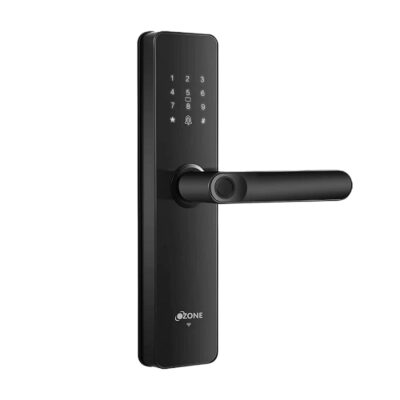As a new homeowner, you have a lot on your plate. From moving in and settling down to taking care of your new property, there’s no shortage of tasks and responsibilities. One essential aspect of homeownership that you shouldn’t overlook is roof maintenance. Your roof is your home’s first line of defense against the elements, and keeping it in good shape is crucial for the overall well-being of your property. In this comprehensive guide, we’ll cover essential roofing repairs tips for new homeowners, including DIY roof repair techniques, when to call in professionals, and how to keep your roof in top condition. So, let’s dive in!
1. The Basics of Roof Maintenance
As a new homeowner, it’s essential to understand the basics of roof maintenance. This includes knowing the different types of roofing materials, their expected lifespans, and common signs of damage. Here are some key points to keep in mind:
- Asphalt shingles are the most common roofing material, with a lifespan of 15-30 years.
- Metal roofs can last up to 50 years, while tile and slate roofs can last even longer.
- Common signs of roof damage include missing or damaged shingles, sagging, and leaks.
By familiarizing yourself with these basics, you’ll be better equipped to handle any roofing repairs issues that may arise.
2. DIY Roof Repair Tips and Techniques
While some roof repairs require professional assistance, there are plenty of DIY roof repair techniques that new homeowners can tackle. Here are a few tips to help you get started:
- Always prioritize safety. Use a sturdy ladder, wear non-slip shoes, and consider using a safety harness.
- Repair damaged or missing shingles promptly to prevent further damage.
- Use roofing cement to seal small cracks and gaps in your roof.
- Clean your gutters regularly to prevent water damage and ice dams.
Remember, if you’re ever unsure about a repair or don’t feel comfortable performing it yourself, it’s best to consult a professional.
3. When to Call in Professional Roof Repair Services
While DIY roof repair can save you money, there are times when it’s best to call in the professionals. Here are a few situations when you should consider hiring a professional roofing contractor:
- Your roof is severely damaged or has extensive leaks.
- You’re unsure of the cause of a problem or how to fix it.
- The repair requires specialized tools or expertise
- You’re uncomfortable performing the repair yourself due to safety concerns.
By knowing when to call in professional help, you can ensure your roof is repaired correctly and safely.
4. Estimating Roof Repair Costs
Roof repair costs can vary greatly depending on the extent of the damage, the materials used, and labor costs. Here are a few general guidelines to help you estimate the cost of your roof repair:
- Minor repairs, such as fixing a few damaged shingles, can cost between $150 and $400.
- Moderate repairs, such as addressing leaks or replacing a section of your roof, can cost between $500 and $1,000.
- Major repairs, such as replacing your entire roof, can cost upwards of $5,000.
Keep in mind that these are just rough estimates, and the actual cost of your roof repair may vary.
5. Choosing the Right Roof Repair Materials
Selecting the right materials for your roof repair is essential for ensuring the longevity and durability of your roof. Here are a few factors to consider when choosing roofing materials:
- Match the materials to your existing roof to maintain a cohesive appearance.
- Consider the climate in your area. Some materials, such as metal, may be more suitable for harsh weather conditions.
- Research the expected lifespan and maintenance requirements of different materials.
By choosing the right materials, you can ensure your roof repair will stand the test of time.
6. Regular Roof Inspections: A Must for New Homeowners
Regular roof inspections are crucial for identifying and addressing potential issues before they become major problems. As a new homeowner, it’s a good idea to schedule a professional roof inspection at least once a year. Additionally, you should perform your own visual inspections periodically, looking for signs of damage such as missing or damaged shingles, sagging, and leaks.

7. Preventative Roof Maintenance Tips
Preventative maintenance is key to keeping your roof in top condition and avoiding costly repairs down the line. Here are a few tips for new homeowners:
- Keep your gutters clean and free of debris.
- Trim overhanging tree branches to prevent damage to your roof.
- Inspect your attic for signs of leaks or moisture.
- Ensure proper attic ventilation to prevent heat and moisture buildup.
- Address minor repairs promptly to prevent further damage.
By following these preventative maintenance tips, you can protect your investment and ensure your roof remains in good shape for years to come.
Conclusion: Protect Your Investment with Proper Roof Maintenance
As a new homeowner, it’s essential to prioritize roof maintenance and repair. By understanding the basics of roof maintenance, tackling DIY repairs when appropriate, and knowing when to call in professional help, you can keep your roof in top condition and protect your investment. Regular inspections and preventative maintenance are key to avoiding costly repairs and ensuring the longevity of your roof. With these roofing repairs tips in hand, you’ll be well-equipped to handle any roofing issues that may arise and keep your home safe and secure.





